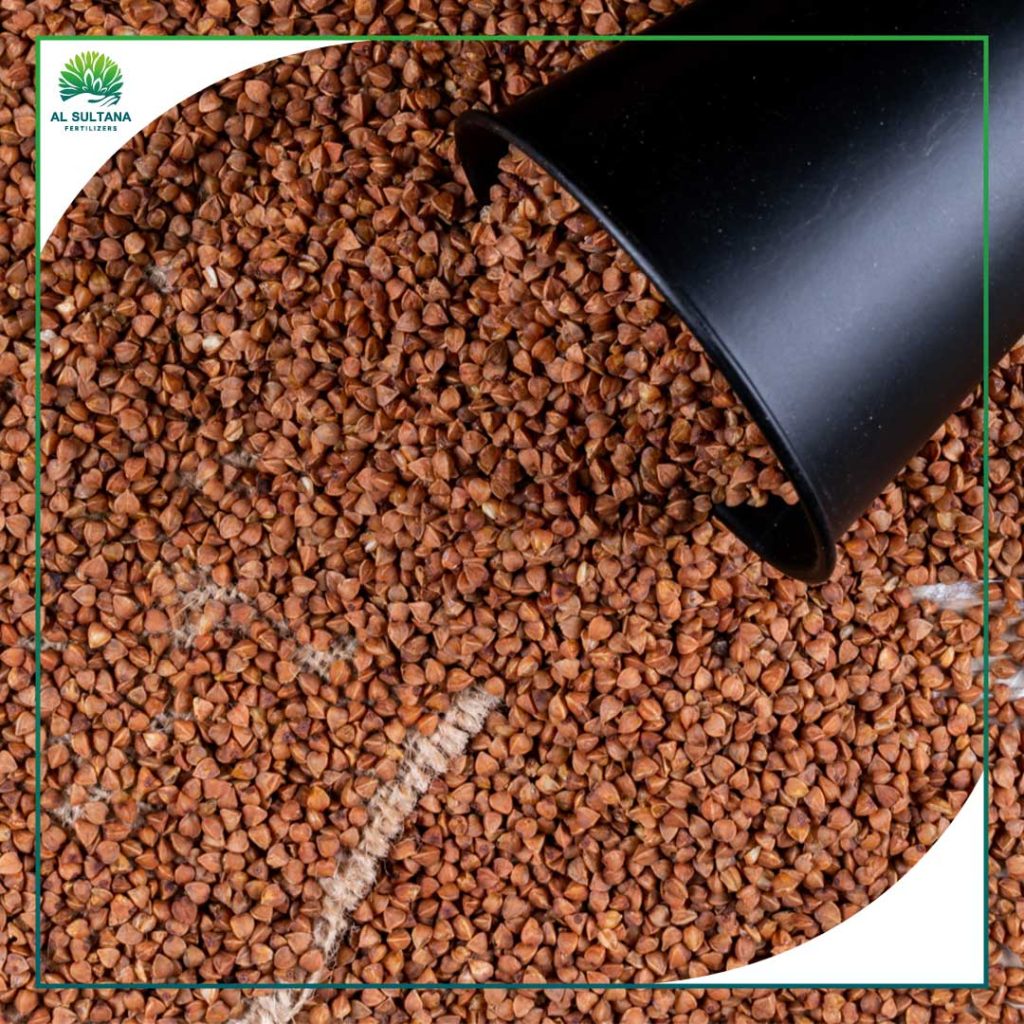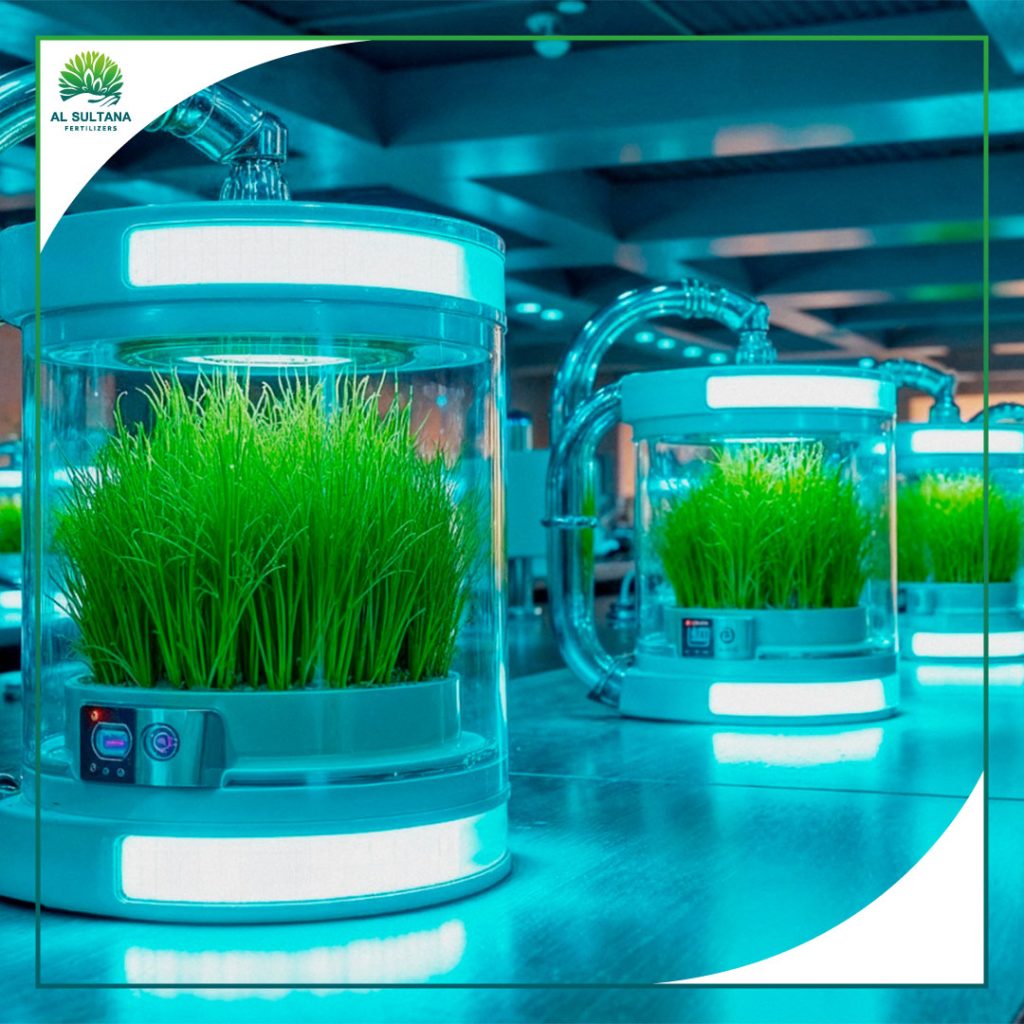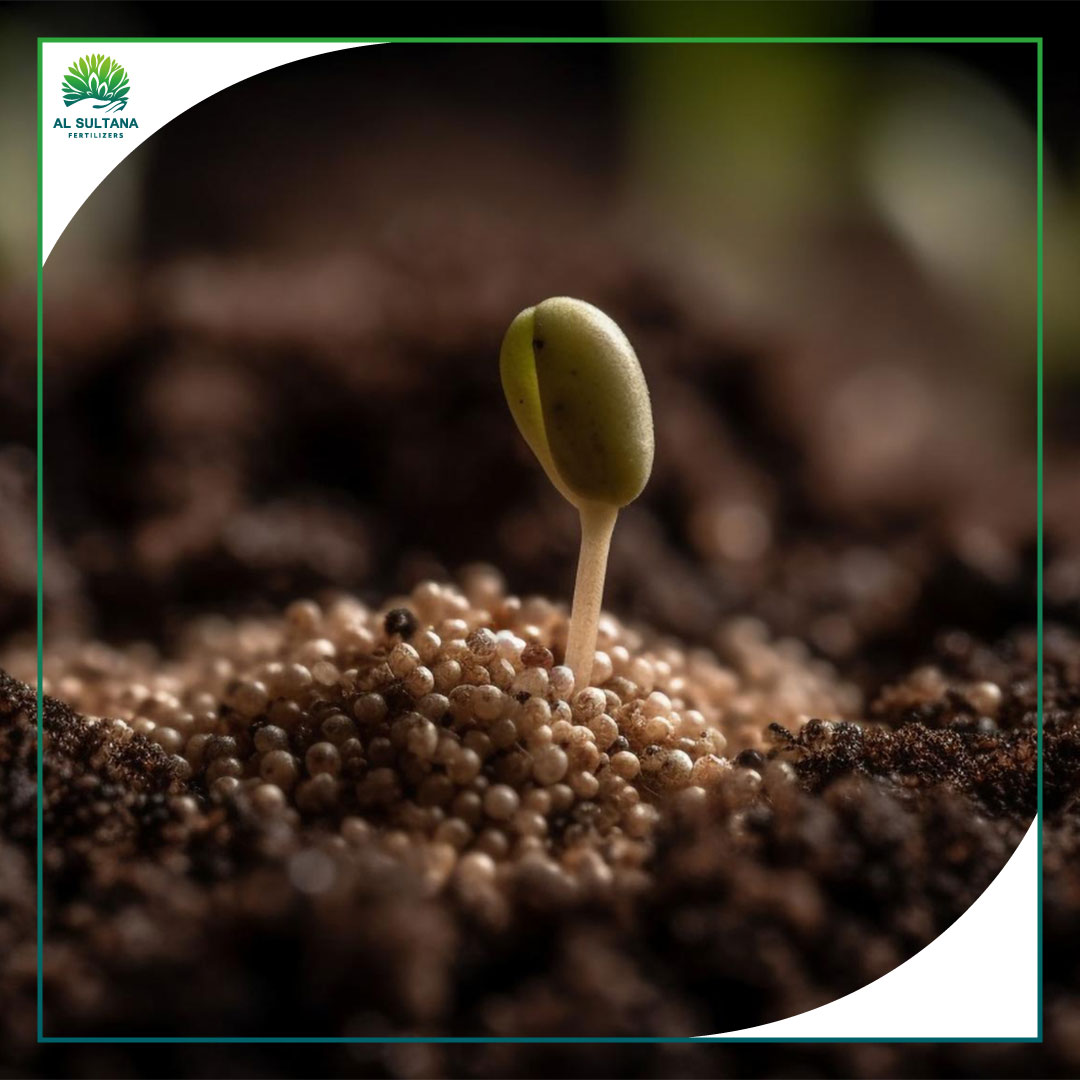At the industrial elegance hub in Turkey, where agricultural innovation meets engineering precision, Al Sultana Fertilizers factory beats strongly as a vibrant heart offering an integrated solution to produce the finest compound fertilizers. Here, fertilizer is not merely produced; it is transformed from raw materials into intelligent granules that support plant growth and enhance crop quality.
Al Sultana factory features an advanced production line relying on precise technologies starting with strict inspection of raw materials, followed by meticulous mixing prior to granulation, then drying and cooling processes that captivate. All these operations contribute to cost reduction and enhance the final product quality, making each fertilizer bag a high-performance product.
We do not only draw production lines; we open paths for farmers to achieve excellent productivity at competitive prices. In this article, we will accompany you step by step inside our factory, revealing the technology and technical details behind producing high-quality NPK fertilizer.
Stages of Producing High-Quality NPK Fertilizer
Producing NPK fertilizer is not a random process; rather, it is a sequence of precise industrial operations starting with preparing raw materials and ending with a final product ready for distribution, characterized by accurate technical specifications and high compositional stability. Here is a detailed look at each stage:

Preparation and Measurement of Raw Materials
The journey begins with receiving primary materials such as urea (as a nitrogen source), ammonium phosphate (for phosphorus), and potash (for potassium), in addition to micronutrients like zinc, manganese, and iron.
Each component undergoes thorough inspection to verify its purity and concentration. Then, the materials are subjected to crushing or fine grinding processes to achieve a uniform particle size, facilitating the mixing process in subsequent stages.
This step aims to ensure consistency in the physical and chemical properties of the inputs, which directly affects the efficiency of the final product in agricultural fields.
Mixing and Homogenization
The raw materials are fed into advanced industrial mixers, such as twin-shaft mixers or V-type mixers, to ensure uniform distribution of each element.
Any imbalance in ratios or distribution may cause fertilizer inefficiency; therefore, precise digital control systems are used to adjust the dosages.
Meticulous mixing is not only the foundation of quality but also one of the secrets behind the fertilizer’s success in delivering quick and effective results for plants.
Granulation
After mixing, the blend is transformed into solid granules by granulation using equipment such as drum granulators or disc granulators.
Steam or water is cautiously added to stimulate agglomeration, where the materials react with moisture to form granules of uniform size and shape.
This stage ensures the formation of user-friendly granules that do not crumble quickly and provide a gradual release of nutrients.
Drying and Cooling
The wet granules are transferred to drying units (such as rotary dryers), which remove a significant portion of moisture to guarantee the fertilizer’s stability during storage.
After drying, granules are cooled using industrial cooling systems like towers or refrigerated containers to maintain granule hardness and reduce fragmentation risk.
This phase is critical for maintaining quality during transportation and storage, especially under varying climatic conditions.
Screening and Recycling
Granules are screened by industrial sieves to separate them according to size. Very small or overly large granules are isolated and returned to the granulation line after being ground again.
This repetition ensures the production of granules that are uniform in shape and size, a critical factor in the fertilizer’s agricultural performance stability.
Coating
In some formulations, a special coating is applied to granules using materials that prevent moisture absorption or regulate nutrient release over time.
This coating may consist of polymeric or wax substances and is used to improve dissolution control and prevent collisions between granules during transport.
Packing and Packaging
The ready granules are packed using automated packaging machines that accurately weigh and seal, with clear labels including:
- NPK ratios
- Usage instructions
- Safety warnings
- Country of origin and production date
Products are packaged in bags of various sizes to suit farmers’ needs, from small plots to large-scale projects.
Quality Control at Every Stage
Quality at Al Sultana is not a separate phase but an integrated process embedded in every production step. From raw material receipt to fertilizer packaging, operations undergo strict monitoring to ensure a product that meets the highest standards of efficacy and reliability.
Automated Control and PLC Systems
Al Sultana employs the latest industrial control systems, primarily Programmable Logic Controllers (PLC).
These systems monitor and adjust critical parameters such as:
- Precise mixing ratios for each nutrient (N, P, K).
- Moisture during granulation and drying stages.
- Temperatures within industrial equipment.
They provide instant alerts in case of any deviation in settings or mixing ratios, reducing human error and enhancing consistent quality replication in every production batch.
Additionally, PLC systems automatically record operational data, facilitating performance tracking and efficiency improvements over time.
Laboratory Testing and Calibration
At every major manufacturing stage, random samples are taken and analyzed within an internal laboratory equipped with advanced analytical instruments. Quality tests include:
- Moisture analysis: to verify granule dryness and storage readiness.
- Granule size determination: via industrial sieves ensuring visual and physical uniformity.
- Chemical purity tests: measuring accuracy of nutrient proportions (such as N-P-K and secondary elements).
Laboratory equipment is periodically calibrated to guarantee accuracy, and analytical records are maintained for each production batch, enhancing transparency and control.
This strict quality commitment grants Al Sultana’s customers high confidence, particularly in export markets where stringent agricultural product standards are enforced.
Technology and Innovation in Fertilizer Production
Continuous Production Line Upgrades
At Al Sultana, work does not stop at traditional production limits but extends to continuous development of equipment and machinery to meet the latest global industry standards. The company relies on fully automated production lines equipped with intelligent control systems (PLC) that closely monitor every step, from ingredient measurement to granulation and packaging.

This continuous upgrade not only enhances production speed but also improves resource utilization efficiency and reduces raw material waste or errors. Some production stages now depend on digital control systems and immediate chemical composition analyses, helping to deliver a precise and homogeneous final product that meets soil and farm requirements across multiple regions.
Focus on Sustainability and Waste Reduction
In the era of smart agriculture, Al Sultana acknowledges its environmental responsibility, thus placing significant emphasis on sustainability principles and waste reduction at every production phase. These efforts start with recycling industrial waste generated during mixing or granulation, converting it into energy or reintroducing it into manufacturing lines.
The company also employs efficient resource management systems, such as reusing industrial water in cooling and cleaning phases, and relying on low-emission energy sources. The goal is not only environmental protection but also providing high-quality fertilizer at a competitive price, resulting from cost improvements and waste minimization.
Impact of Quality on Farms and Crops
Nutritional Balance for Crops
Success in agriculture starts from the roots, which is why Al Sultana’s NPK fertilizers feature precise and balanced formulations meeting the nutritional needs of different plants at various growth stages. The company maintains scientifically studied proportions of nitrogen (N), phosphorus (P), and potassium (K) based on scientific research and field trials.
For example, formulations like 20-20-20 or 15-15-30 are used for crops such as tomatoes, potatoes, strawberries, and cereals, helping to accelerate vegetative growth and improve fruit yield. Formulations with higher potassium ratios benefit flowering stages or enhance plant immunity against diseases.
Ease of Use and Application
Fertilizer quality depends not only on its chemical content but also on ease of field application. Here lies the advantage of Al Sultana’s manufactured granular fertilizers, which come in uniform shapes, facilitating transport, storage, and distribution through irrigation systems or manual spreading.
The regular granule shape contributes to balanced nutrient distribution in the soil and reduces losses caused by evaporation or runoff. Additionally, coated granules maintain their quality during transit, ensuring they reach farms in excellent condition and enhancing fertilizer effectiveness without the need for excessive dosing.
Compliance with International Markets
Quality Standards for Global Competitiveness
To enter international markets confidently, Al Sultana adheres to a set of strict standards ensuring its products meet global requirements. The company holds certifications such as ISO 9001 and ISO 45001 and complies with European Union technical specifications (EU Regulations) regarding nutrient content, heavy metal residues, and environmental sustainability.
These standards have enabled the company to export its products to multiple countries in Europe, Asia, Africa, and the Middle East, with strategic plans to expand into Latin America and Southeast Asian markets. This commitment makes Al Sultana fertilizers a preferred choice for global distributors and farmers seeking reliable quality at competitive prices.
Multilingual and Professional Packaging
The product’s first impression begins with its packaging; therefore, Al Sultana places great importance on clear, multilingual, and professional packaging designs reflecting product identity and specifications. Important information such as NPK ratios, usage instructions, technical warnings, and contact/support details are printed in English, Turkish, and Arabic, with the possibility of adding other languages depending on the target market.
This approach not only facilitates customer understanding of product use but also reflects the company’s commitment to transparency and trust, showcasing readiness to operate in multicultural and regulatory environments.
Conclusion
If you are seeking a reliable partner in producing high-quality fertilizers, Al Sultana offers you everything you need: advanced technologies, quality commitment, customized solutions, and international reach.
We invite you today to visit our factory in Izmir, Turkey, to explore the production lines firsthand or contact our team to obtain a comprehensive product catalog or request a free sample to try on your farm.
📩 Click here to contact the sales department
📥 Or Download the product catalog
Read also Who is Al Sultana Fertilizers?


